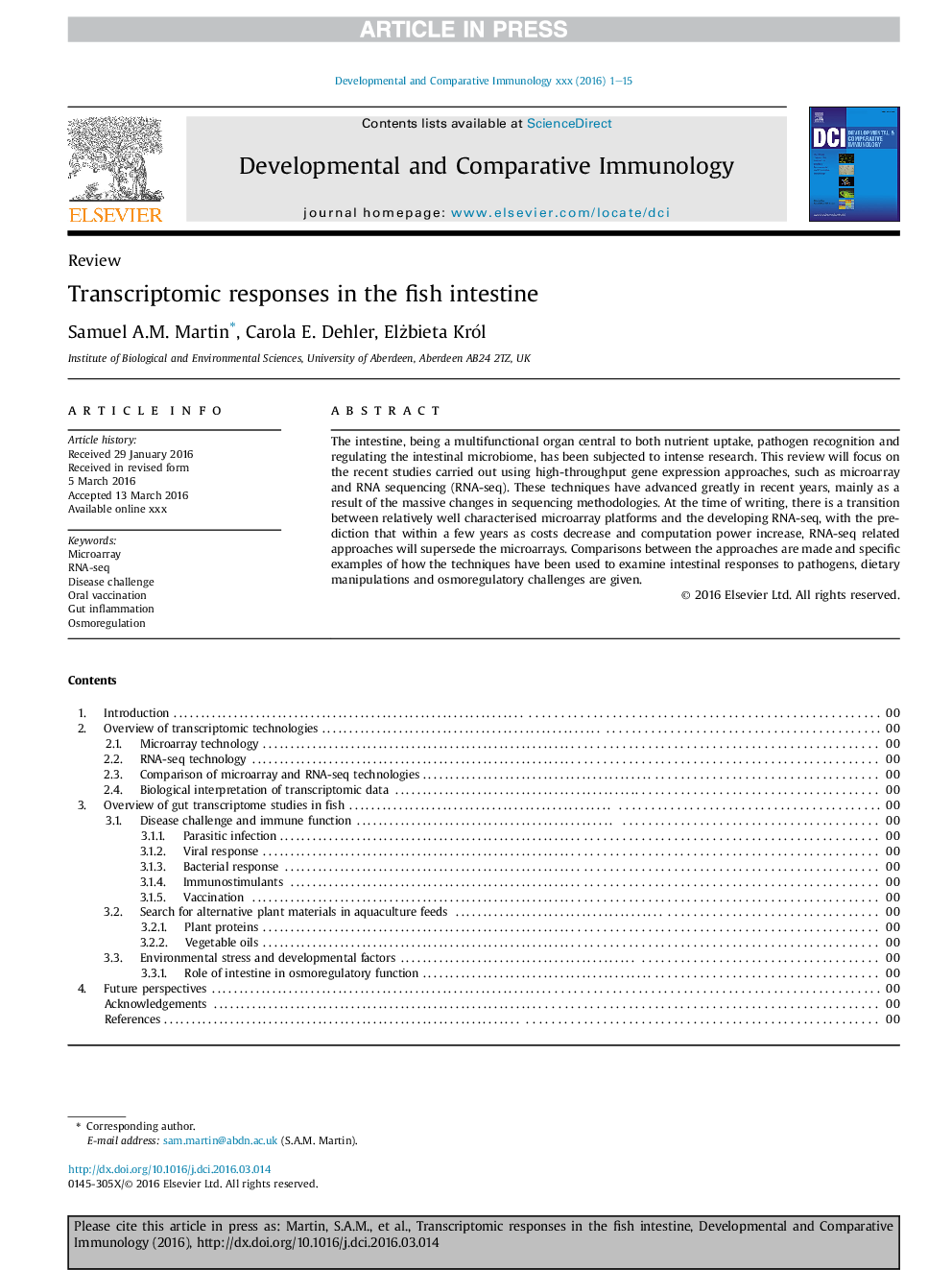| Article ID | Journal | Published Year | Pages | File Type |
|---|---|---|---|---|
| 8497906 | Developmental & Comparative Immunology | 2016 | 15 Pages |
Abstract
The intestine, being a multifunctional organ central to both nutrient uptake, pathogen recognition and regulating the intestinal microbiome, has been subjected to intense research. This review will focus on the recent studies carried out using high-throughput gene expression approaches, such as microarray and RNA sequencing (RNA-seq). These techniques have advanced greatly in recent years, mainly as a result of the massive changes in sequencing methodologies. At the time of writing, there is a transition between relatively well characterised microarray platforms and the developing RNA-seq, with the prediction that within a few years as costs decrease and computation power increase, RNA-seq related approaches will supersede the microarrays. Comparisons between the approaches are made and specific examples of how the techniques have been used to examine intestinal responses to pathogens, dietary manipulations and osmoregulatory challenges are given.
Related Topics
Life Sciences
Biochemistry, Genetics and Molecular Biology
Developmental Biology
Authors
Samuel A.M. Martin, Carola E. Dehler, Elżbieta Król,
